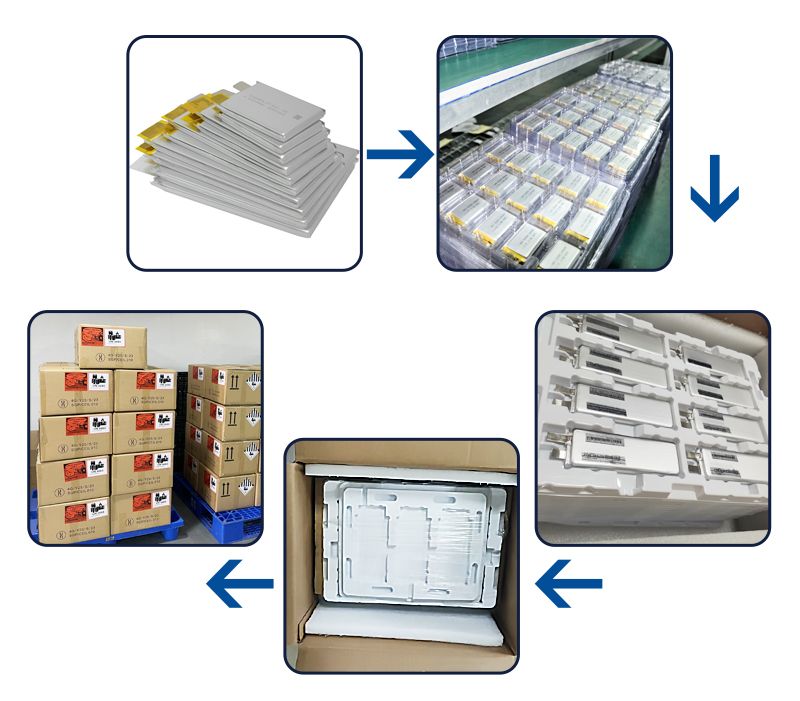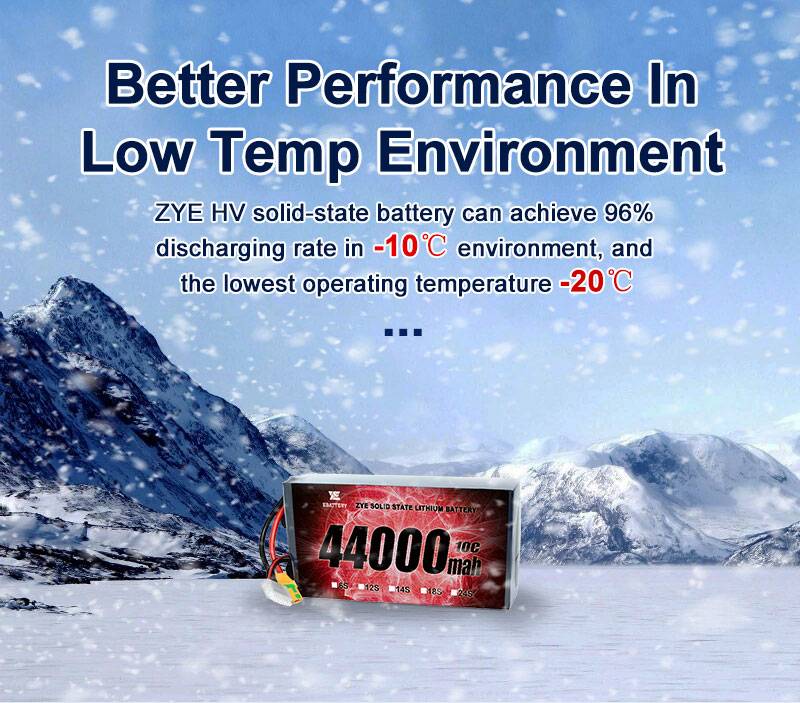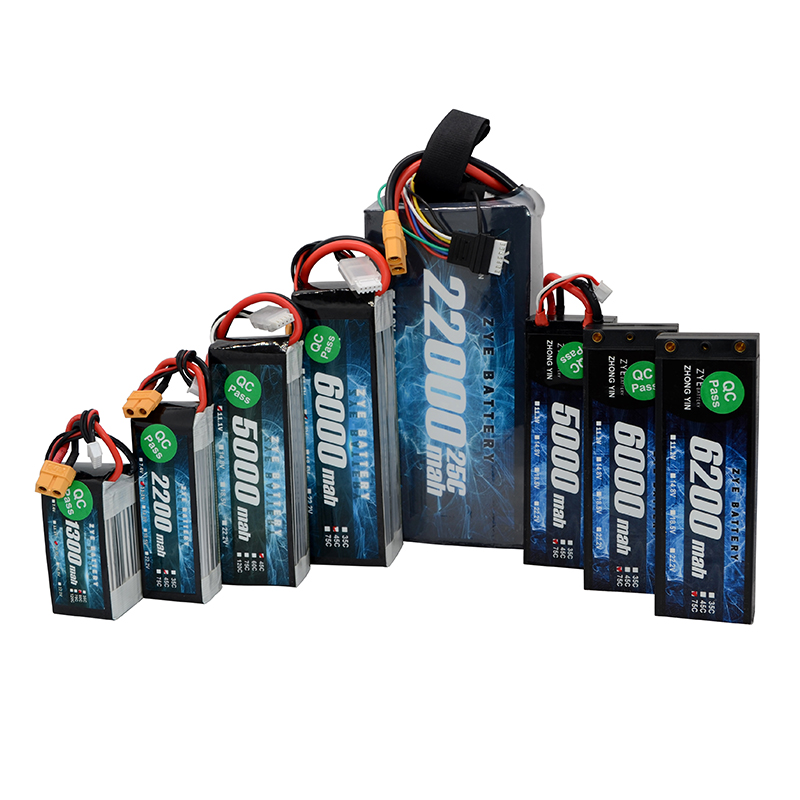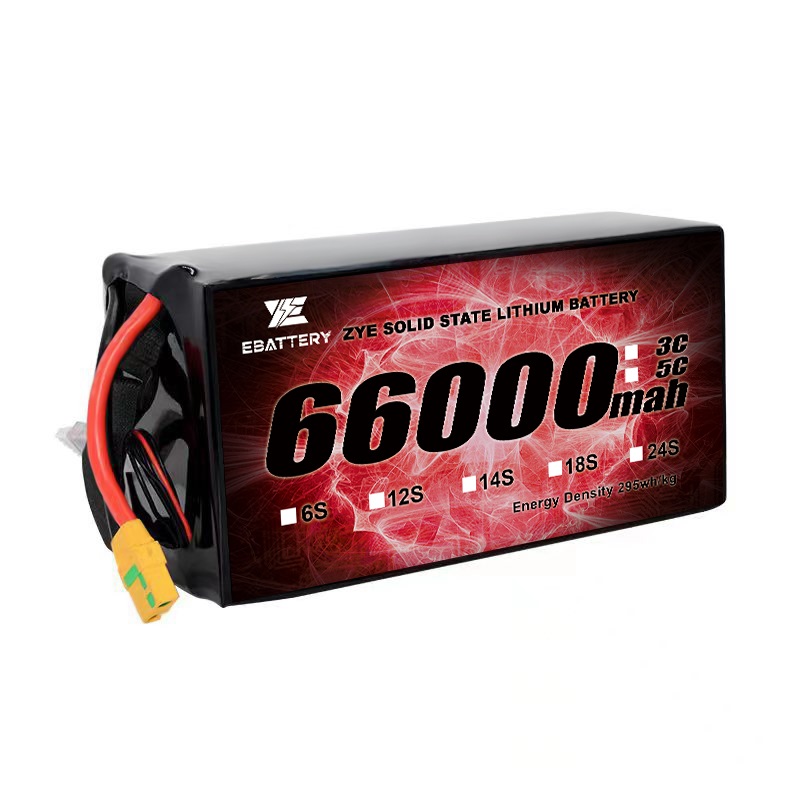How to ship Lipo batteries?
2025-08-04
Lithium polymer (LiPo) batteries have become increasingly popular due to their high energy density and lightweight nature.
When it comes to air transportation, these batteries are subject to strict regulations. This article will explore the ins and outs of shipping lipo-battery-for-drone.

How to Safely Store a Lipo Battery
Proper storage is crucial for maintaining the safety and longevity of lipo battery. Here are some essential tips to ensure safe storage:
Temperature control: Store your LiPo batteries in a cool, dry place with a temperature range between 40°F and 70°F (4°C to 21°C). Avoid extreme temperatures, as they can damage the battery cells and increase the risk of fire.
Charge level: Before storing, discharge your battery to approximately 3.8V per cell, or about 40-50% capacity. This voltage level helps prevent cell degradation and reduces the risk of swelling.
Use a LiPo safe bag: Invest in a fireproof LiPo safe bag to store your batteries. These bags are designed to contain potential fires and protect surrounding areas.
Inspect regularly: Check your stored batteries periodically for signs of damage, swelling, or unusual odors. If you notice any issues, dispose of the battery safely.
Keep away from conductive materials: Store your LiPo batteries away from metal objects or conductive surfaces to prevent short circuits.
Avoid direct sunlight: Sunlight can cause temperature fluctuations and potentially damage the battery cells. Store your batteries in a dark, cool place.
By following these storage guidelines, you can significantly reduce the risk of lipo-battery catching fire when not in use. However, it's essential to understand the common causes of LiPo battery fires to further enhance safety measures.

How to Safely Ship Lipo Batteries
Shipping LiPo batteries by air requires careful preparation and adherence to specific guidelines. Here are some crucial steps to ensure safe transportation:
Proper Packaging: It is essential to use durable, non-conductive materials to package LiPo batteries. Each battery should be individually wrapped to prevent direct contact with other batteries or any conductive materials that might cause short circuits. A strong outer box is recommended to prevent physical damage during transit. Ensure that the packaging is secure to minimize movement inside the box, further reducing the risk of damage.
Label Clearly: To comply with shipping regulations, make sure the package is clearly labeled with the appropriate hazard labels. These include the “Lithium Battery Mark” label, which indicates the presence of lithium batteries, and any additional required labels as per the shipping regulations of the specific carrier or region. These labels are vital for informing handlers about the contents and potential risks.
State of Charge: Before shipping, ensure that the batteries are not fully charged. The optimal state of charge for air transport is typically between 30% and 50%. Shipping batteries in a lower state of charge reduces the risk of thermal runaway in case of an emergency. Check the battery’s charge before packing to avoid any issues during transit.
Documentation: Proper documentation is crucial when shipping lithium batteries by air. Include a lithium battery safety document that outlines the safe handling procedures and any precautions associated with the batteries. Additionally, include an air waybill that provides shipping details. These documents are required by the carrier and relevant authorities for compliance.
Choose a Carrier: Select an air carrier that is authorized to transport lithium batteries and is familiar with the required regulations. Many airlines and logistics companies have specific guidelines and procedures for shipping hazardous materials, including lithium batteries. Ensure the carrier is well-equipped to handle such shipments safely.

It's crucial to note that different airlines and countries may have varying requirements. Always check with your chosen carrier and relevant authorities for the most up-to-date information.
If you have any questions about lipo-battery care or are looking for high quality lipo battery solutions, please feel free to contact us at coco@zyepower.com. We're here to help you power your projects safely and efficiently.
























































